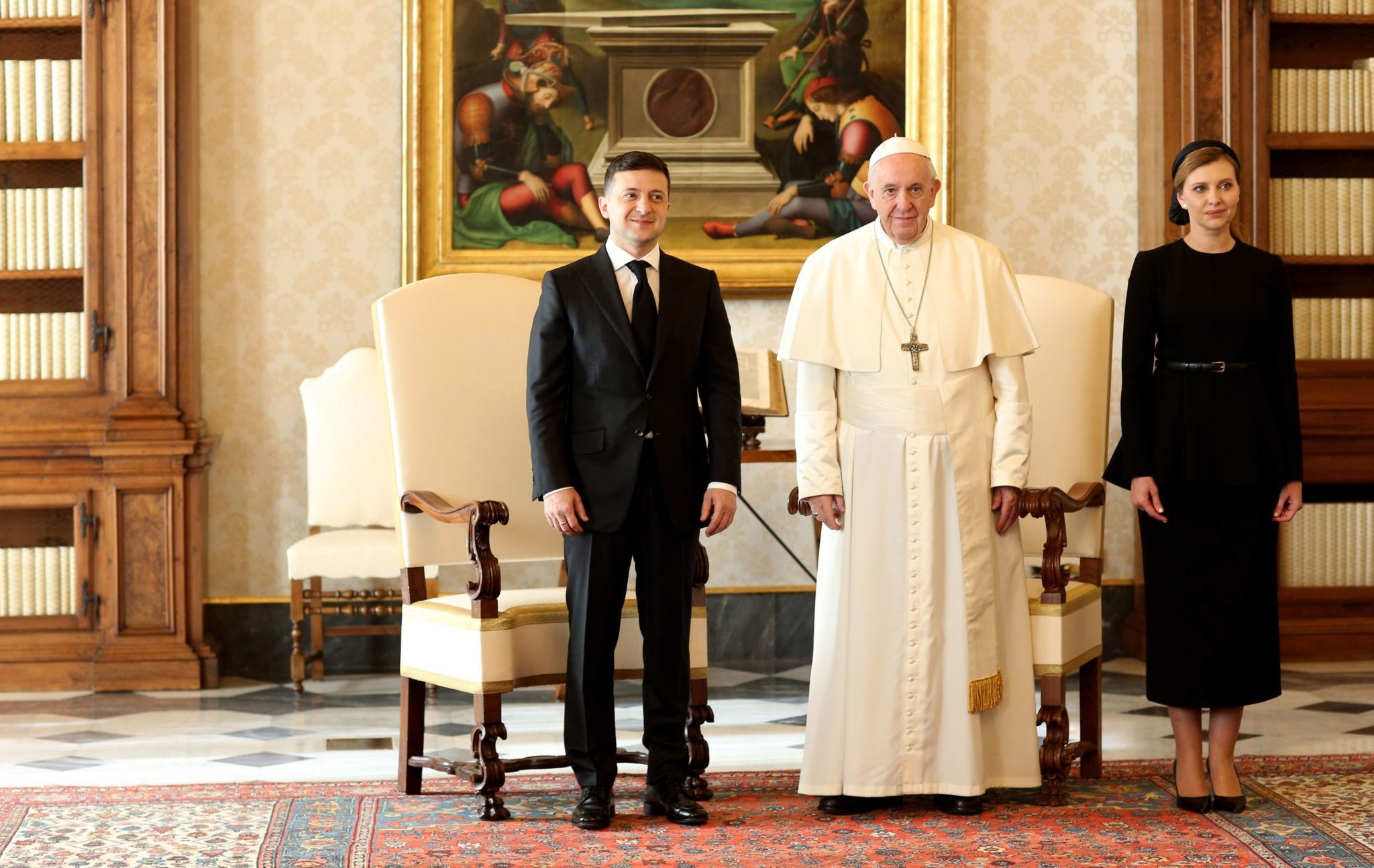Pope Francis Can Help End the Ukraine War

Pope Francis recently told a reporter for the Argentine newspaper La Nacion that he is “willing to do everything to stop the war. Everything.” Claiming that “the Vatican never rests” in its diplomatic efforts to bring peace to Ukraine, the pope had planned a June meeting in Jerusalem with Russian Orthodox Patriarch Kirill. But any hope for papal diplomacy was dashed last week when the Vatican abruptly cancelled the meeting.
It appears that the Vatican may indeed rest in its diplomatic efforts when high profile commentators in the Catholic press here in the United States and abroad criticize any attempt by Pope Francis to meet with the Russian patriarch. Some commentators have demanded that the pope “call out by name” President Putin, adding he has not done enough to denounce what they have identified as Kirill’s role in actually encouraging or blessing Putin’s alleged war crimes.
George Weigel, a Catholic commentator and distinguished senior fellow of the Ethics and Public Policy Center in D.C., has been one of the harshest critics of the now-cancelled June meeting with Patriarch Kirill. Dismissing the diplomatic visit to Jerusalem to meet with Russian patriarch as a papal “fantasy,” Weigel wrote:
Some of those promoting a second Francis/Kirill encounter were likely thinking of the optics. Two religious leaders meeting in wartime to pray for peace would, they imagined, vividly demonstrate the Christian capacity to rise above ethnic hatred and national passion in the name of Easter faith and universal moral norms. That, however, was fantasy based on fallacy.
It is clear that Weigel has no respect for Patriarch Kirill. Claiming that Kirill has promoted an expansive vision of the Russian world that falsifies the Christian history of the eastern Slavs and underwrites a revival of tsarist and Stalinist imperialism, Weigel has called the patriarch a “mouthpiece in the Russian disinformation campaign proclaiming the tyrant Vladimir Putin as the savior of civilization against Western decadence.” Worse, Weigel accuses Kirill of “repeatedly deploying religious justifications for Russia’s barbaric assault on Ukraine,” and asks, “Is Kirill not, then, a blasphemer?”
Pope Francis has already said he is willing to do anything and “everything” to stop the war in Ukraine. He also has said that his relationship with Patriarch Kirill is “very good.” But, he also acknowledged that “others” have convinced him that canceling his conversation with the patriarch was necessary. In his interview with La Nacion, he said that “our diplomacy understood that a meeting of the two of us at this time could cause a lot of confusion.”
It is unfortunate that the anti-diplomacy side appears to be winning, even though it seems that Pope Francis truly wished to meet with the Russian patriarch. Pope Francis knows that he could make a difference in this war. Just as his saintly namesake, St. Francis of Assisi, defied the diplomats eight centuries ago by crossing the battlefield between Crusader and Muslim forces in order to meet Sultan al-Malik, Pope Francis should have an opportunity to promote peace in meeting with Patriarch Kirill. Pope Francis has already emulated St. Francis “in stressing the fraternity of the human family” throughout his papacy, in the documents he has promulgated and the outreach he has undertaken.
Pope Francis knows that people of God are not our enemies. He knows that Patriarch Kirill is not the enemy, though many commentators have attempted to make him so. In March, an article published in Religion News Service described the patriarch as “the only cleric in the world to bless the Russian atrocities in Ukraine.” In that same article, the author derisively pointed to Kirill’s $30,000 Swiss Breguet watch as proof that “he plays with the big boys.”
None of this name-calling is helpful. It is clear that Pope Francis is deeply aggrieved by the war in Ukraine, and he has enlisted the Papal Foundation to send aid to the Ukrainian people. Pope Francis has already shown in his writings and his actions throughout his papacy that he sees human fraternity as a “path for peace.” He should be supported in his efforts to take that path. A visit to Patriarch Kirill could mean the difference between peace and continued war.
Anne Hendershott is professor of sociology and director of the Veritas Center for Ethics in Public Life at Franciscan University of Steubenville, Ohio.